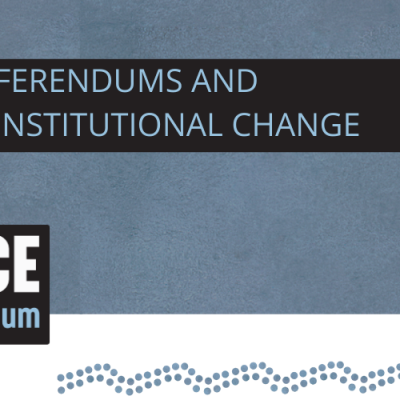Refine results
-
Aboriginal and Torres Strait Islander Social Justice14 June 2024Speech
4th National Indigenous Empowerment Summit
‘Framing Indigenous empowerment with human rights: using the Declaration on the Rights of Indigenous Peoples for real change’ Wednesday 12 June 2024 Good Morning All My name is Katie Kiss. I am a proud Kaanju, Biri/Widi woman from North Queensland. I was born and raised on the lands of the Darumbal peoples in Rockhampton, in Central Queensland. Before I begin today, I pay my respects to the … -
8 December 2020Book page
Part 5: Thriving communities and sustainable economies
Discover how Aboriginal and Torres Strait Islander women and girls face barriers when accessing education and employment and how this is being addressed. -
Commission - General4 July 2024E-bulletin (Monthly)
July 2024: Commission News | President's letter
Dear friends, I am pleased to report the Free + Equal Conference was a resounding success. A big thank you to everyone who participated in these timely and significant discussions about human rights and the urgent need for a Human Rights Act in Australia. A snapshot of the conference: 700+ delegates pledged support for a national Human Rights Act 60+ speakers 1200+ attendees over two days 12… -
Commission - General15 March 2024Speech
Australian Human Rights Commission’s complaint handling jurisdiction
Civil Justice Research Conference 2019 Macquarie University, Sydney Emeritus Professor Rosalind Croucher AM [ Professor Croucher spoke to this paper] Abstract The complaint handling role of the Australian Human Rights Commission from time to time attracts some attention in the media—but not always for constructive reasons. This presentation set out the real story. It is one that is a worthy… -
Rights and Freedoms30 November 2022Speech
Reforming Age Discrimination Law
Reforming Age Discrimination Law: Beyond Individual Enforcement, Alysia Blackham (2022) Panel discussion Emeritus Professor Rosalind Croucher AM President, Australian Human Rights Commission I am speaking today from the traditional lands of the Dharug and Gundungurra peoples and pay my respects to Elders past, present and emerging—and to the traditional custodians of the lands from wherever… -
1 August 2014Book page
Chapter 4: Experiences of employers in managing pregnancy, parental leave and return to work after parental leave
In summary Employers identified several challenges in managing pregnancy/return to work issues, including: Confusion and uncertainty about their legal obligations, and about employee rights Managing the uncertainty that can surround pregnancy/return to work issues, especially regarding timeframes, employees’ return to work and employees’ requests to work flexibly or part-time Limiting the… -
Aboriginal and Torres Strait Islander Social Justice4 August 2023Webpage

Referendums and constitutional change
The Australian Electoral Commission (AEC) will hold a referendum in late 2023. The referendum will ask Australians whether the Constitution should be changed to include a recognition of the First Peoples of Australia by establishing an Indigenous Voice to Parliament -
Rights and Freedoms4 February 2019Speech
Roles, responsibilities and challenges
The Australian Human Rights Commission—roles, responsibilities and challenges Supreme and Federal Court Judges’ Conference 2019 Hobart, 22 January 2019 Emeritus Professor Rosalind Croucher AM [Professor Croucher spoke to this paper] Introduction I begin my presentation by acknowledging the traditional custodians of this land, and pay my respect to the elders, past, present, and emerging…
Pagination
- First page « First
- Previous page ‹ Previous
- 1
- Current page 2
- 3
- 4
- 5
- 6
- 7
- 8
- 9
- …
- Next page Next ›
- Last page Last »
